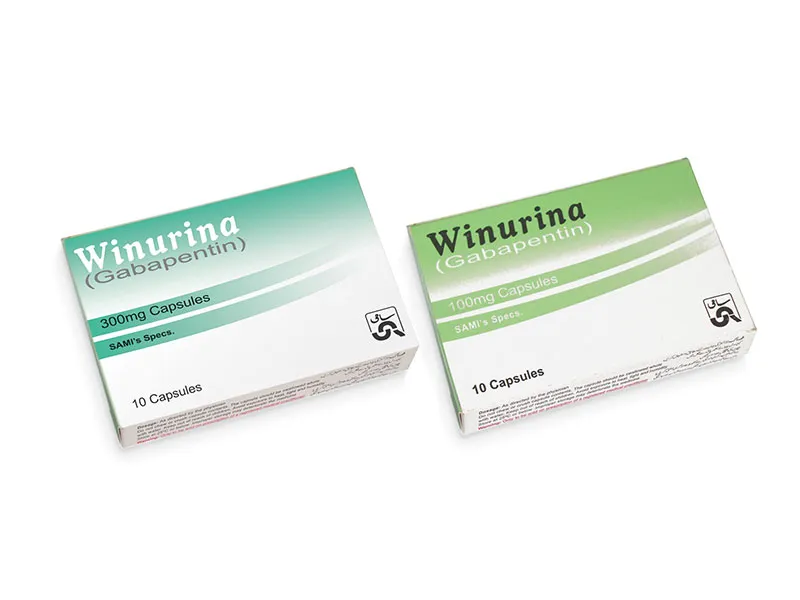Description
- Composition and Classification
Winurina 100mg Capsule contains Gabapentin, an anticonvulsant and neuropathic pain reliever. It is classified as an antiepileptic drug (AED) and is chemically related to the neurotransmitter gamma-aminobutyric acid (GABA), although it does not interact with GABA receptors. Gabapentin is structurally similar to GABA but exerts its therapeutic effects through different mechanisms. Each capsule of Winurina contains 100mg of gabapentin as the active ingredient, and it may include various inactive ingredients such as lactose, gelatin, and coloring agents, depending on the manufacturer.
- Mechanism of Action
Gabapentin works by binding to the alpha-2-delta subunit of voltage-gated calcium channels in the central nervous system. This action reduces the release of excitatory neurotransmitters such as glutamate, norepinephrine, and substance P, which are involved in the transmission of pain and seizure activity. By modulating these calcium channels, gabapentin helps to stabilize nerve cell activity, making it effective in the treatment of both seizures and neuropathic pain. It does not affect sodium channels or GABA uptake and metabolism directly.
- Indications and Uses
Winurina 100mg is prescribed for a variety of medical conditions. Its primary indications include the treatment of partial seizures (with or without secondary generalization) in adults and children over 3 years old, and the management of neuropathic pain such as postherpetic neuralgia, diabetic neuropathy, and fibromyalgia. It is also commonly used off-label for conditions such as generalized anxiety disorder, restless legs syndrome, and migraine prevention. Its effectiveness in chronic pain management makes it a frequently used drug in neurology and pain clinics.
- Dosage and Administration
Winurina 100mg is typically used as a starting dose, particularly in patients who are new to gabapentin or are sensitive to medication. The dosage is gradually increased over several days to reach an effective maintenance dose. It is usually taken orally, with or without food, and may be administered two to three times daily depending on the condition being treated. The total daily dose and schedule should be determined by a healthcare professional. For seizure control, consistent dosing is essential. Patients should never stop the medication abruptly, as this could lead to withdrawal symptoms or increased seizure risk.
- Side Effects and Precautions
Common side effects of Winurina include drowsiness, dizziness, fatigue, peripheral edema (swelling of hands or feet), blurred vision, tremor, and lack of coordination. These side effects are usually mild to moderate and tend to subside as the body adjusts to the medication. However, more serious effects such as mood swings, depression, suicidal thoughts, allergic reactions, or breathing difficulties can occur and require immediate medical attention. Gabapentin should be used with caution in elderly patients, those with renal impairment, and those taking other central nervous system depressants, including opioids, as there is a risk of increased sedation and respiratory depression.
- Warnings and Interactions
Patients should inform their doctor of all medications and supplements they are taking, as gabapentin can interact with antacids (containing aluminum or magnesium), reducing its absorption. It may also have additive effects with opioid painkillers, sleeping pills, or alcohol, leading to enhanced sedation and risk of respiratory issues. In patients with kidney problems, dosage adjustments are essential since gabapentin is primarily excreted unchanged through the kidneys. It is not recommended to drive or operate heavy machinery until the individual knows how the medication affects them due to possible dizziness or drowsiness.
- Storage and Handling
Winurina 100mg capsules should be stored at room temperature (15°C to 30°C), away from direct light and moisture. Keep the capsules in their original packaging until use, and out of reach of children. Do not use the medication beyond its expiration date. Unused or expired medication should be disposed of properly according to local regulations, and not flushed down the toilet or thrown into household trash unless specifically instructed.



Reviews
There are no reviews yet.